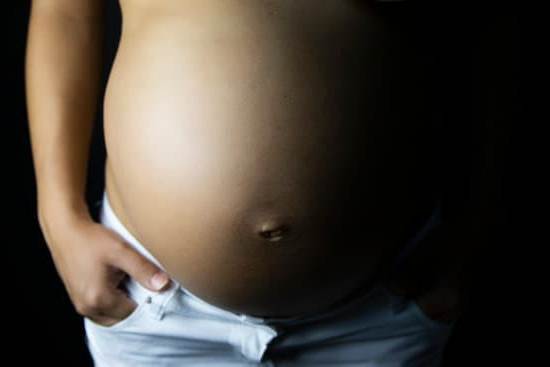What does pregnancy spotting look like? Understanding the difference between spotting and bleeding during pregnancy is crucial for expectant mothers. This article aims to provide valuable information on the characteristics, causes, and management of pregnancy spotting. Additionally, real-life experiences from women who have experienced pregnancy spotting will be shared to empower and educate others.
Pregnancy spotting can be a cause of concern for many women. It is important to distinguish between normal spotting and potential complications during pregnancy. This article will delve into the various aspects of pregnancy spotting, including its causes, identifying characteristics, and when to seek medical attention.
By understanding the difference between spotting and bleeding during pregnancy, women can alleviate unnecessary anxiety and stress related to this common occurrence. Furthermore, common misconceptions about pregnancy spotting will be addressed in order to provide accurate information for expectant mothers. Stay tuned for empowering stories from real women who have navigated through pregnancy while experiencing spotting.
Understanding the Difference Between Spotting and Bleeding During Pregnancy
Pregnancy spotting can be a common occurrence for many women, causing concern and worry. It is important to understand the difference between spotting and bleeding during pregnancy in order to determine when medical attention is necessary.
Spotting vs. Bleeding
Spotting during pregnancy is typically characterized as light, irregular bleeding that may be pink or brown in color. It may appear as a few drops on underwear or toilet paper after wiping. On the other hand, bleeding during pregnancy is generally heavier and may resemble a menstrual period with bright red blood. Understanding the distinction between spotting and bleeding is crucial for expectant mothers to alleviate any anxiety or stress related to these symptoms.
Causes of Spotting
There are several factors that can cause pregnancy spotting, including implantation bleeding, hormonal changes, cervical irritation, or even infection. While some causes of spotting are considered normal, others can indicate potential complications such as miscarriage or ectopic pregnancy.
Importance of Medical Attention
While spotting is not uncommon during pregnancy, it is essential for women to seek medical attention if they experience any abnormal or worrying symptoms. This includes heavy bleeding, severe cramping, dizziness, or passing of large clots. In these cases, prompt evaluation by a healthcare provider can help ensure the well-being of both mother and baby.
Understanding the difference between spotting and bleeding during pregnancy allows women to better monitor their symptoms and seek appropriate medical care when needed. By staying informed about these distinctions, expectant mothers can minimize anxiety and stress related to pregnancy spotting while taking proactive steps towards their prenatal health.
What Causes Pregnancy Spotting?
Pregnancy spotting can be a cause of concern for many women, especially for those who are pregnant for the first time. Understanding what causes pregnancy spotting can provide reassurance and peace of mind. Here are some common reasons why pregnancy spotting may occur:
1. Implantation Bleeding: One of the most common causes of pregnancy spotting is implantation bleeding, which occurs when the fertilized egg attaches itself to the uterine lining. This typically happens around 6-12 days after conception and may appear as light pink or brown spotting.
2. Cervical Changes: During pregnancy, the cervix becomes more sensitive and may easily become irritated, leading to light spotting. This can occur after intercourse or a pelvic exam.
3. Hormonal Changes: Fluctuations in hormone levels during pregnancy can also cause spotting. This is particularly common during the first trimester as the body adjusts to the changes required to support a growing fetus.
4. Miscarriage: While it’s important to note that not all cases of pregnancy spotting lead to miscarriage, it is one potential cause. Spotting accompanied by severe cramping or heavy bleeding should be evaluated by a healthcare provider immediately.
5. Infection: In some cases, spotting during pregnancy could be an indication of an infection in the reproductive organs. It’s essential to seek medical attention if there is any abnormal discharge or foul odor present along with the spotting.
Understanding what causes pregnancy spotting can help alleviate anxiety and provide valuable insight into what may be happening within your body during this crucial time. If you have any concerns about pregnancy spotting, always consult with your healthcare provider for personalized advice and care.
Identifying the Characteristics of Pregnancy Spotting
Pregnancy spotting can be a cause for concern for many expectant mothers. It is important to be able to identify the characteristics of pregnancy spotting in order to determine whether it is a normal occurrence or if medical attention is necessary.
Pregnancy spotting typically appears as light pink or brown discharge, often with a very small amount of blood. It may also be accompanied by mild cramping, similar to menstrual cramps. However, it is important to note that every woman’s experience with pregnancy spotting can differ, and it may not always present in the same way for everyone.
In some cases, pregnancy spotting may also be linked to implantation bleeding, which occurs when the fertilized egg attaches itself to the uterine lining. This type of spotting usually happens around the time of an expected period and can appear as light bleeding that lasts for a few hours to a few days. Understanding these characteristics can help pregnant women distinguish between normal pregnancy symptoms and potential complications.
| Characteristic | Description |
|---|---|
| Color | Light pink or brown discharge |
| Accompanying Symptoms | Mild cramping similar to menstrual cramps |
| Timing | Occurs around the time of an expected period or during implantation |
When to Seek Medical Attention for Pregnancy Spotting
Pregnancy spotting can be a cause for concern for many expectant mothers. While it can be completely normal, there are instances where it may indicate a more serious issue. This section will provide guidance on when to seek medical attention for pregnancy spotting, offering valuable information for pregnant women.
It is important to remember that every woman’s pregnancy experience is unique, and what may be normal for one person could be a red flag for another. Anytime a pregnant woman notices spotting or bleeding, it is essential to stay calm and assess the situation. In general, it is recommended to seek medical attention if the spotting is accompanied by severe abdominal pain, fever, dizziness, or if it becomes heavy like a menstrual period.
Furthermore, if the spotting persists for several days, increases in intensity, or is recurrent throughout your pregnancy, it is crucial to consult with a healthcare professional. They can provide valuable insight into the potential causes of the spotting and offer appropriate guidance on next steps.
| When to Seek Medical Attention | Signs/Symptoms |
|---|---|
| If accompanied by severe abdominal pain | Fever or dizziness |
| If the spotting persists/ increases in intensity | Recurrent throughout pregnancy |
Common Misconceptions About Pregnancy Spotting
Many women experience pregnancy spotting at some point during their pregnancy, and it is important to understand the common misconceptions about this phenomenon. Here are some of the most prevalent misconceptions about pregnancy spotting:
- Spotting always means something is wrong: One common misconception is that any amount of spotting during pregnancy is a sign of a serious problem. While it can be a cause for concern, especially if it is accompanied by pain or other symptoms, spotting can also be normal and not necessarily indicative of a miscarriage or other complications.
- Spotting is always red: Another misconception is that pregnancy spotting will always appear as bright red blood. In reality, spotting can range in color from light pink to brown and may even resemble discharge rather than traditional bleeding.
- It’s always a sign of implantation: Many people believe that any spotting during pregnancy automatically means implantation has occurred. While implantation bleeding can cause light spotting in some cases, it is not the only reason why pregnant women may experience this symptom.
It is important for women to educate themselves about what pregnancy spotting looks like and to seek guidance from healthcare professionals if they have any concerns. Understanding the realities and misconceptions surrounding pregnancy spotting can help alleviate unnecessary anxiety and stress during this critical time.
While it is crucial to be aware of potential complications associated with pregnancy spotting, it’s also important to debunk some of these misconceptions so that women can have a more accurate understanding of this common occurrence during pregnancy.
Tips for Managing Anxiety and Stress Related to Pregnancy Spotting
Experiencing pregnancy spotting can be a source of anxiety and stress for many women. It is important to remember that while it can be concerning, it is not always a cause for alarm. However, managing the anxiety and stress associated with pregnancy spotting is crucial for the well-being of both the mother and the baby.
Understanding Your Emotions
When faced with pregnancy spotting, it is natural to feel anxious and stressed. It’s important to acknowledge and understand these emotions rather than suppress them. Talking to your partner, a trusted friend, or a healthcare provider about your feelings can help you process them and alleviate some of the stress.
Seeking Support
Seeking support from others who have experienced pregnancy spotting can provide comfort and reassurance. Online communities, support groups, or forums centered around pregnancy can be valuable sources of support during this time. Connecting with others who have gone through similar experiences can help reduce feelings of isolation and normalize the emotions you are experiencing.
Practicing Self-Care
Engaging in self-care activities such as mindfulness exercises, meditation, gentle yoga, or taking walks in nature can help alleviate anxiety and stress related to pregnancy spotting. It’s important to prioritize rest and relaxation during this time and listen to your body’s needs. Additionally, maintaining a healthy diet and staying hydrated can contribute to overall well-being during this period.
By implementing these tips for managing anxiety and stress related to pregnancy spotting, women can navigate this challenging experience with greater resilience and peace of mind. Remember that seeking professional help if your anxiety becomes overwhelming is always an option for ensuring your mental health stays on track throughout this process.
Real-Life Experiences
When it comes to pregnancy spotting, hearing real-life experiences from other women who have gone through the same thing can be incredibly reassuring and helpful. Every woman’s experience with pregnancy spotting is unique, and it can be comforting to know that you are not alone in what you are going through.
One of the most common characteristics of pregnancy spotting is the worry and anxiety that it can cause. Many women may feel scared or uncertain about what is happening to their bodies, but hearing stories from others who have experienced similar situations can provide a sense of solidarity and support. By sharing their experiences, these women can help alleviate some of the fear and stress that comes with pregnancy spotting.
For example, one woman might share how she experienced light spotting during her first trimester, causing her to panic and rush to the doctor’s office. However, after a thorough examination, she was reassured that everything was normal and that spotting can be a common occurrence in early pregnancy. Hearing stories like this can provide comfort to other women going through a similar situation, helping them understand that they are not alone and that their experiences are valid.
It’s important for women to share their experiences with pregnancy spotting so that others may find strength and encouragement in knowing they are not the only ones facing this challenge. These real-life stories can help empower and educate women about pregnancy spotting, ultimately fostering a sense of community among those who have gone through or are currently experiencing the same thing.
Conclusion
In conclusion, it is important to remember that pregnancy spotting can be a common occurrence for many women and does not always indicate a serious issue. Understanding the difference between spotting and bleeding, as well as the characteristics of pregnancy spotting, can help alleviate anxiety and stress related to this experience. By empowering and educating women about pregnancy spotting, they can feel more confident in identifying when medical attention may be necessary versus when it is not.
Furthermore, it is crucial for women to know when to seek medical attention for pregnancy spotting. If the spotting is accompanied by severe abdominal pain, cramping, or heavy bleeding, it is essential to consult a healthcare provider immediately. However, mild spotting without other concerning symptoms may not necessarily warrant immediate medical attention.
Ultimately, by sharing real-life experiences from women who have gone through pregnancy spotting, we hope to provide support and reassurance to those who may be experiencing the same thing. It is important for women to feel empowered with knowledge about their bodies and their pregnancies so that they can make informed decisions about seeking medical care and managing their emotional well-being during this time.
By understanding what pregnancy spotting looks like and being informed about its causes and characteristics, women can navigate this experience with confidence and peace of mind.
Frequently Asked Questions
Should I Take a Pregnancy Test if Im Spotting?
Spotting can be a sign of early pregnancy, so it’s a good idea to take a pregnancy test if you’re experiencing spotting. The test can confirm whether or not you are pregnant and provide important information for your next steps.
What Does the Spotting Look Like in Early Pregnancy?
Spotting in early pregnancy can range from light pink or brown discharge to more noticeable bleeding. It may occur when the fertilized egg implants in the uterus, and it’s generally lighter than a regular menstrual period.
What Does Implantation Spotting Look Like?
Implantation spotting is usually light pink or brown in color and occurs around 10-14 days after conception. It is typically very light and doesn’t require a pad or tampon. This type of spotting is often one of the first signs of pregnancy.

Welcome to my fertility blog. This is a space where I will be sharing my experiences as I navigate through the world of fertility treatments, as well as provide information and resources about fertility and pregnancy.





